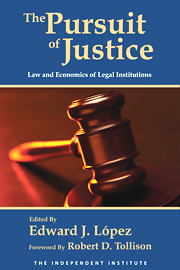A ballot measure put before voters in the November 6 election to allow local governments to expand rent control might sound good to some, but we do not have to look far for evidence that it will actually lead to fewer, and less affordable, housing options.
A story in the New York Times described the plight of frustrated would-be tenants in San Francisco trying to elbow dozens of others like themselves out of the way to impress landlords for the privilege of paying exorbitant prices for tiny apartments, oftentimes in sketchy neighborhoods, as wealthy Silicon Valley tech workers have been bidding up prices and adding to the competition for housing. The article described how rental agents recommend that renters “wear professional attire and show enthusiasm for the apartment,” and prepare a “renters’ resume” containing their job history, credit reports and references.
The very next day, however, the Times ran a column by an economist who felt that there was something amiss, something unmentioned in the story. Sure enough, the story had completely avoided any mention of what the economist described as San Francisco’s “draconian” rent-control law. He mocked the news article’s description of its “free-market horror stories,” as the government interventions into rental housing, and its negative unintended consequences, made it a far cry from a free market.
“After all, the sort of landlord behavior described in the article ... doesn’t happen in uncontrolled housing markets,” he asserted. “Landlords don’t want groveling—they would rather have money.”
“Surely it is worth knowing that the pathologies of San Francisco’s housing market are right out of the textbook, that they are exactly what supply-and-demand analysis predicts,” the economist concluded. “But people literally don’t want to know.”
It should be noted here that the news article mentioned was not ripped out of this week’s headlines. It was published in June of 2000. And the economist is no hardline conservative or libertarian free marketeer, but none other than Paul Krugman, the standard bearer for liberal economists.
There are two lessons to be learned from all of this. First, after nearly 20 years, San Francisco’s rent-control law has clearly not done anything to improve the situation. Second, economists of all stripes consider rent control to be a harmful policy. As Krugman noted in his column, a 1992 survey of American Economic Association members found that 93 percent of economists agreed that “a ceiling on rents reduces the quality and quantity of housing.”
Economists notoriously differ on a wide variety of issues, but on price controls there is little debate. In the case of rent control, where a price ceiling is set below the market rate, more people are eager to pay the lower price, but fewer landlords want to rent units at that price, which leads to a housing shortage. Profits are diminished, making apartment housing a less attractive investment, so existing units are converted to luxury condos, fewer apartment units are built, and there is less money available to invest in maintaining them (hence, the lower quality of housing cited by economists).
There is no question rent control is a bad economic policy; the question is entirely a political one, which brings us to Proposition 10. In 1995, the Costa-Hawkins Rental Housing Act prevented local governments from imposing rent control on housing built after January 31, 1995. The legislation also generally limited rent control to apartments and allowed prices for rent-controlled units to adjust back up to market levels once tenants move out.
Proposition 10 would repeal Costa-Hawkins, allowing local governments to implement or expand rent control on newer housing, apply it to condos and single-family houses, and/or cap rent increases even after a tenant leaves.
This would only exacerbate the housing affordability problem by making rental properties less profitable, if at all, thus encouraging developers and landlords to build and operate fewer units than they otherwise would. A lucky few will benefit from below-market rates, but the vast majority of people will suffer from even higher prices and fewer housing units.
The answer to the housing affordability crisis is simply to stop restricting the supply of housing and let it grow to meet demand. Eliminating existing rent control, restrictive zoning, and excessive development fees and labor and environmental regulations would do far more to improve housing affordability in California.But, as Krugman notes, that is not what many people want to hear. They’re sure just one more law, one more infringement on property rights will solve all their problems—even after decades of failure, both within California and around the country.









